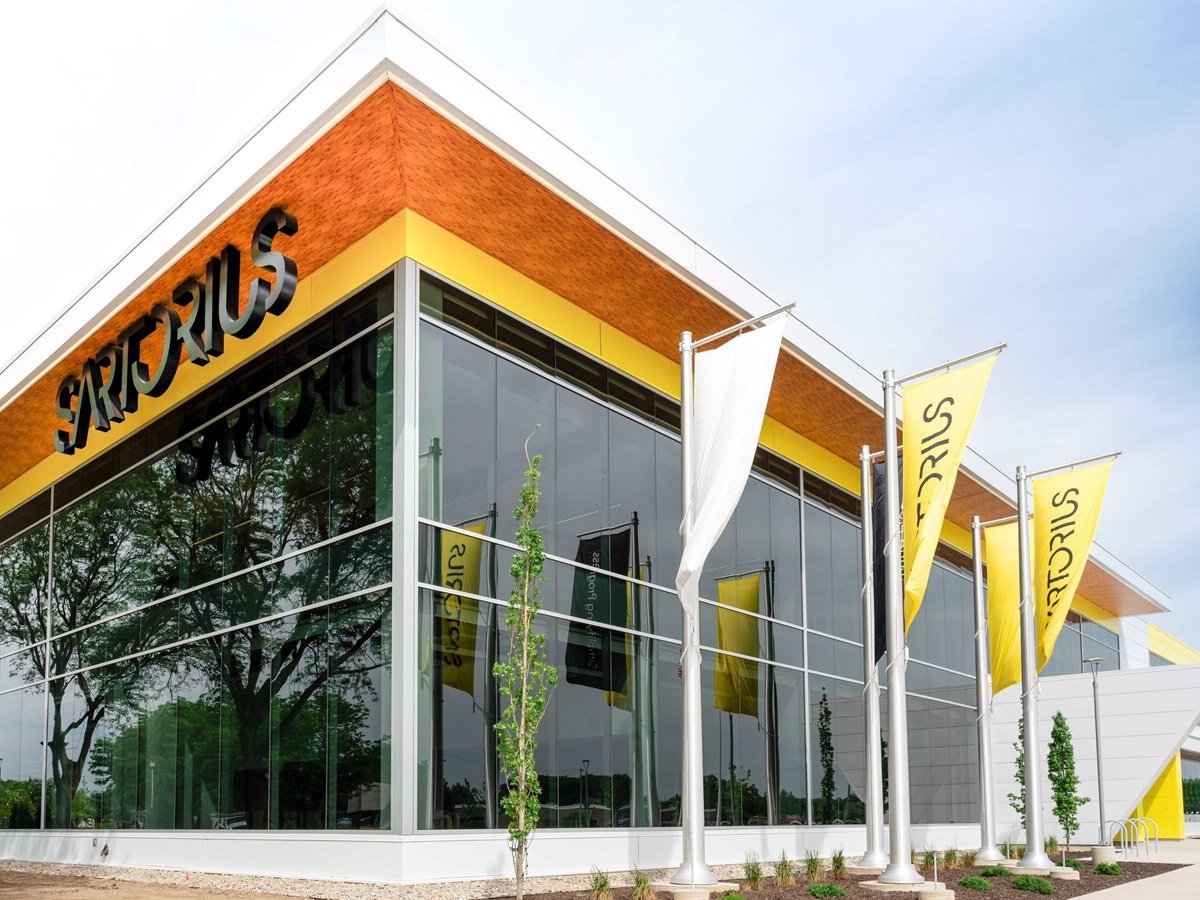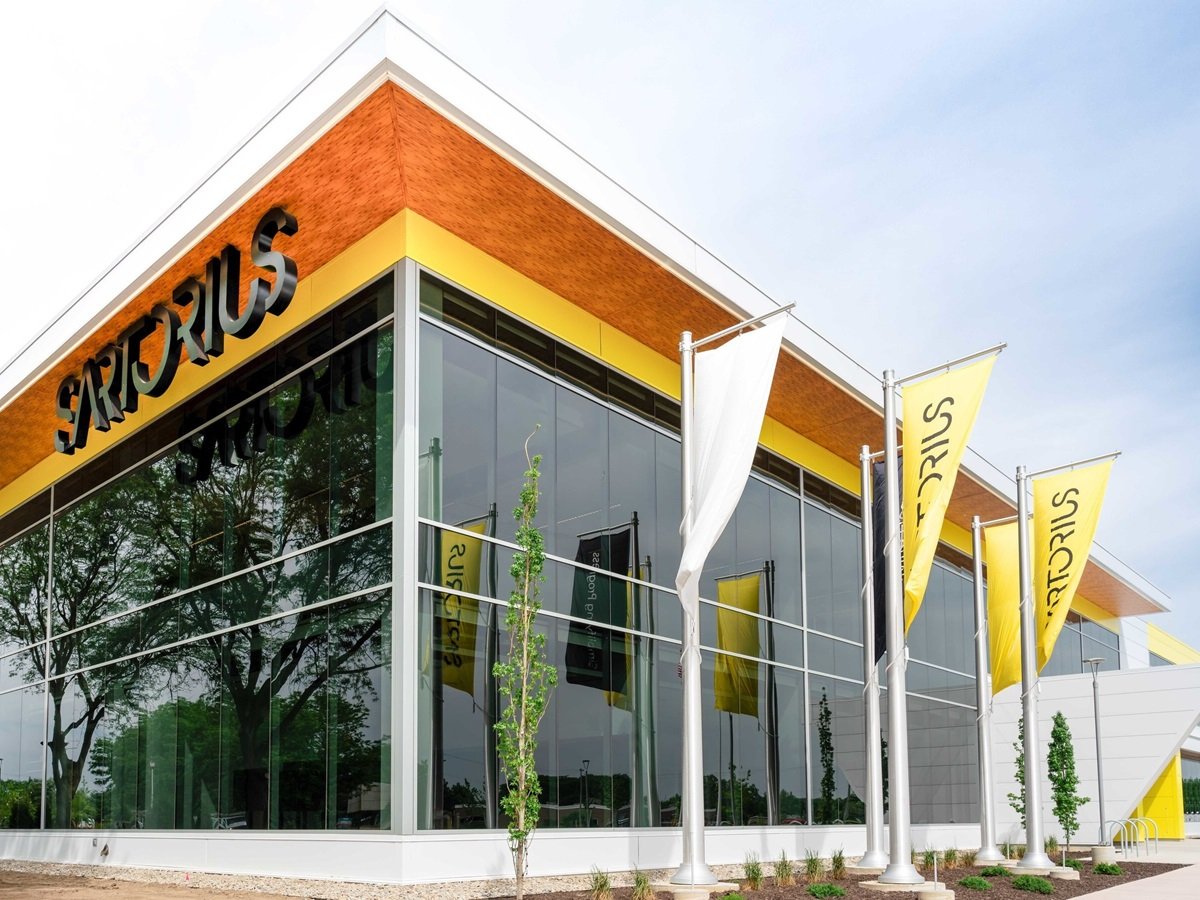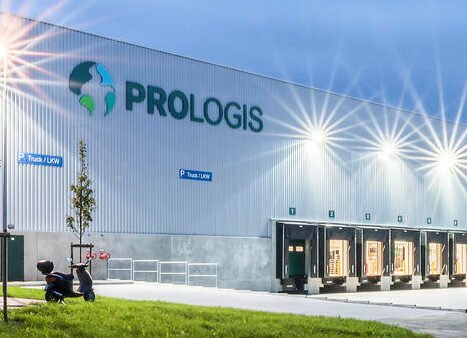
Sartorius, a Germany-based life science research and biopharmaceutical company, has completed a $100 million, 130,000-square-foot facility in Ann Arbor, Mich.
The group broke ground on the Center of Excellence for bioanalytics at the Tech Loop at Research Park two years ago. Hobbs+ Black Architects was the project architect and J.S. Vig Construction Co. was the general contractor.
Providing highly automated bioanalytical solutions for the development of biopharmaceutical drugs, Sartorius currently has about 140 employees and expects to more than double its workforce within several years. The new company flagship at 3874 Research Park Drive will consolidate several existing sites and functions in Ann Arbor and Washtenaw County, and also provide space for future expansion.
READ ALSO: Life Science Prospects Are Looking Up
The company has been in the city for several years after acquiring Essen BioScience in 2017 and SoloHill in 2020. Sartorius, which has about 60 production sites and sales sites around the world, has about 2,600 employees at 12 sites in North America.
Strategic location
Company officials noted Ann Arbor is strategically located in close proximity to customers and renowned universities, including the University of Michigan with access to talent, technology and logistics.
READ ALSO: Office Debt – The Underwater Mountain
The Center of Excellence will serve several functions for the company. It will have a manufacturing and services area, biology labs, warehouse, office and training spaces as well as a Customer Interaction Center. Sartorius will develop and manufacture a range of bioanalytical instruments at the site with a focus on providing advanced solutions to help customers develop drugs that cure, prevent and halt the procession of diseases. The facility will also provide particle validation services and produce microcarriers used in cell culture processes.
Sartorius is seeking LEED gold certification for the property. Sustainable features include green energy supply from 200 kilowatt solar panels, 30 electric vehicle charging stations and Research Park’s first storm runoff pond to protect against flooding and erosion.





